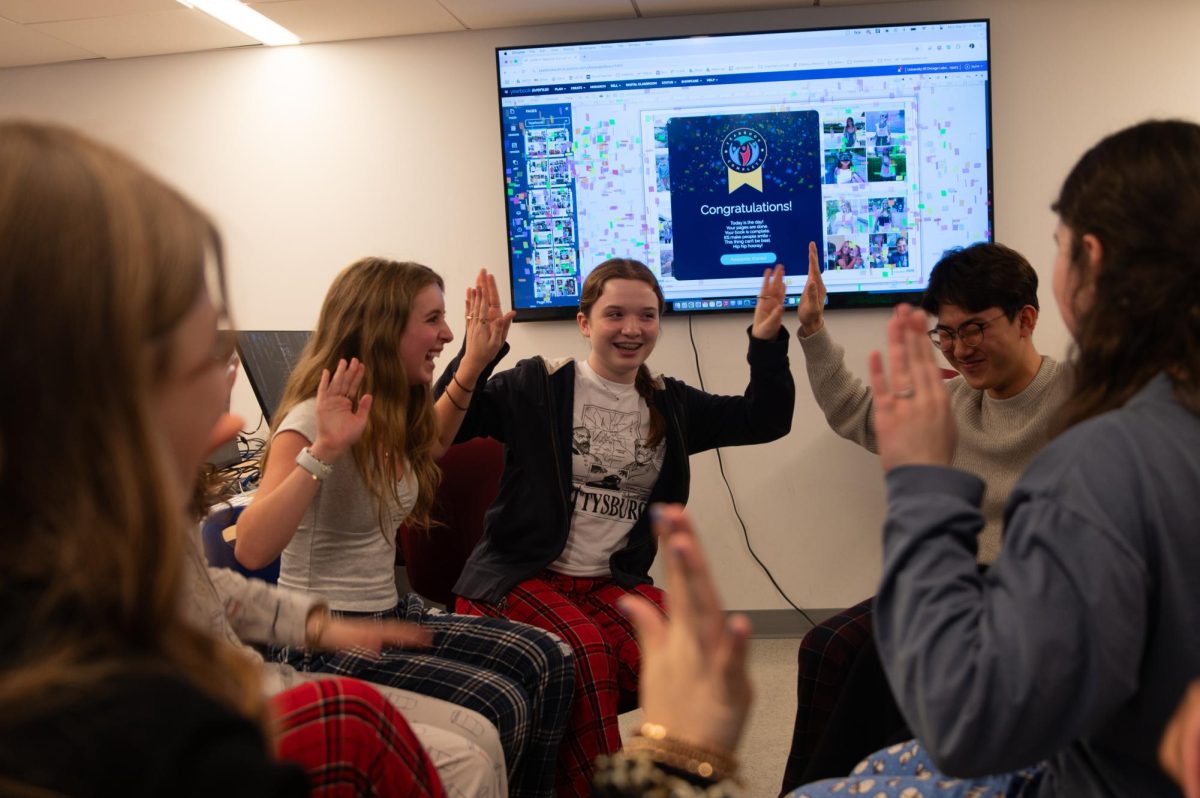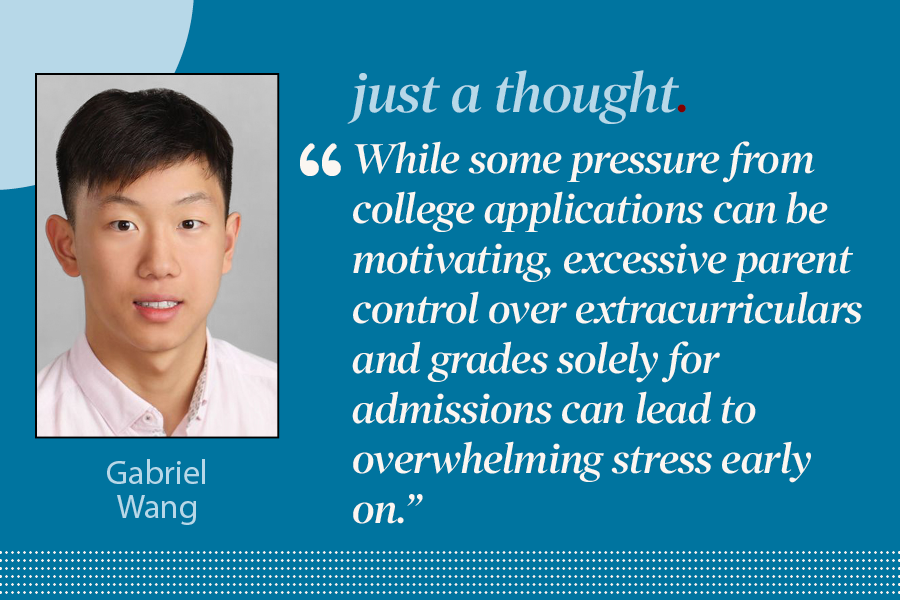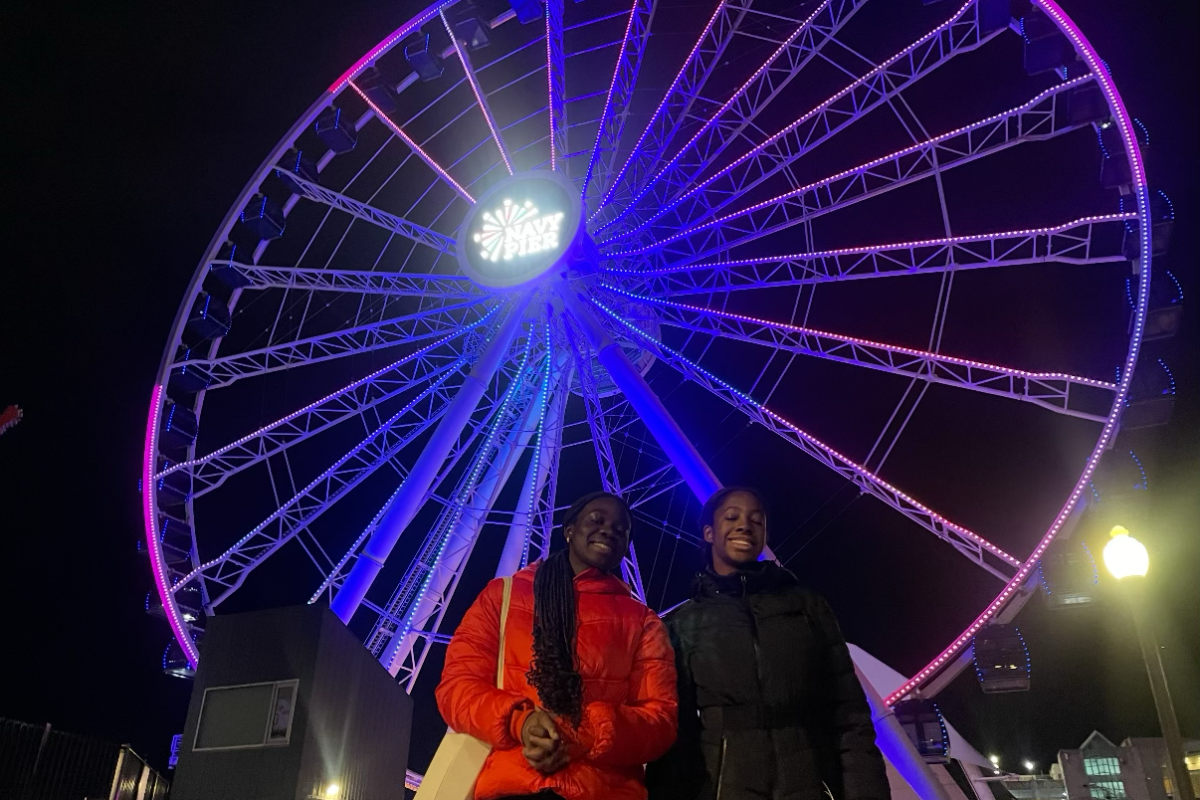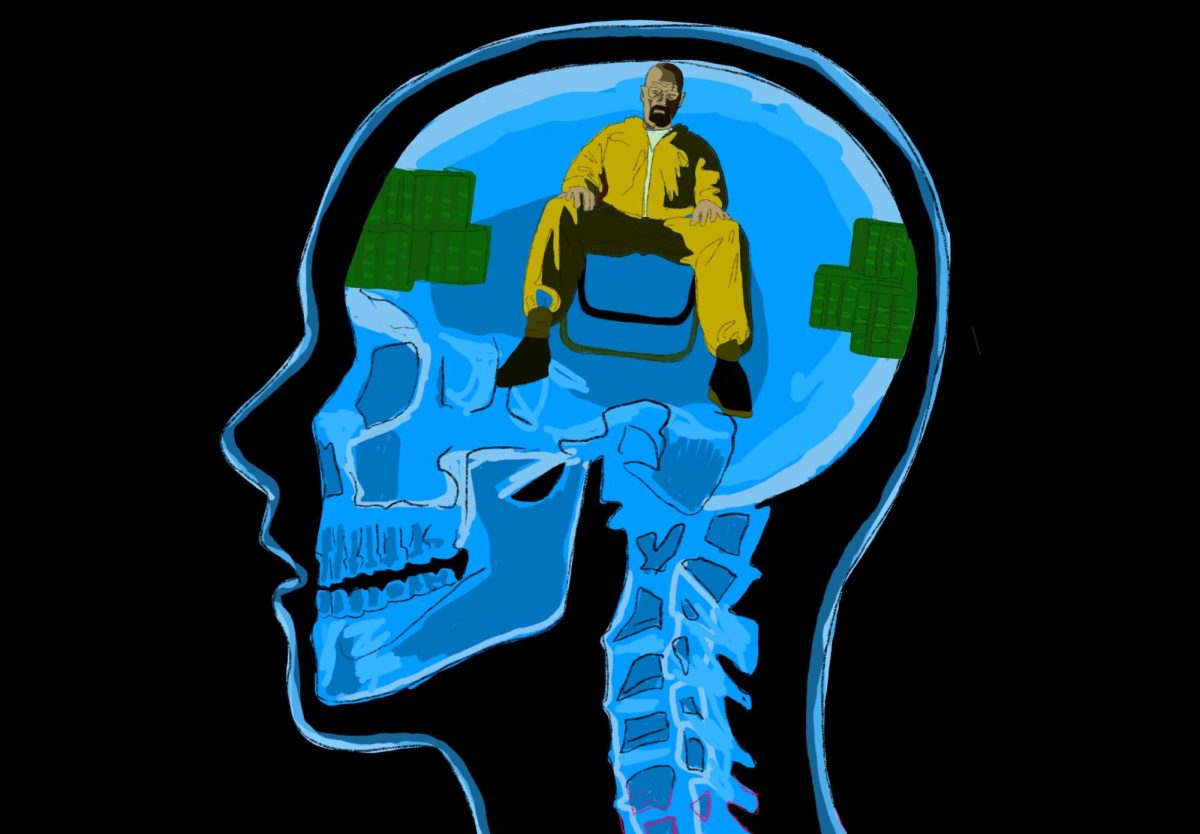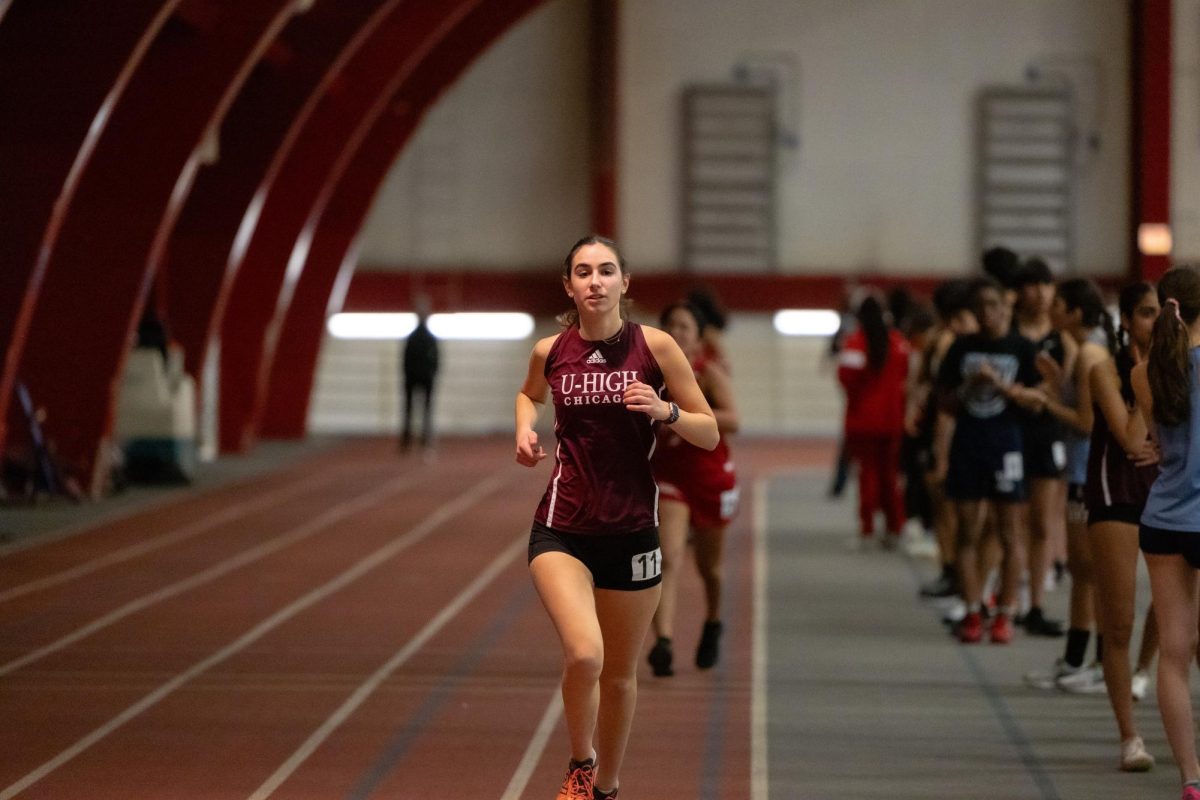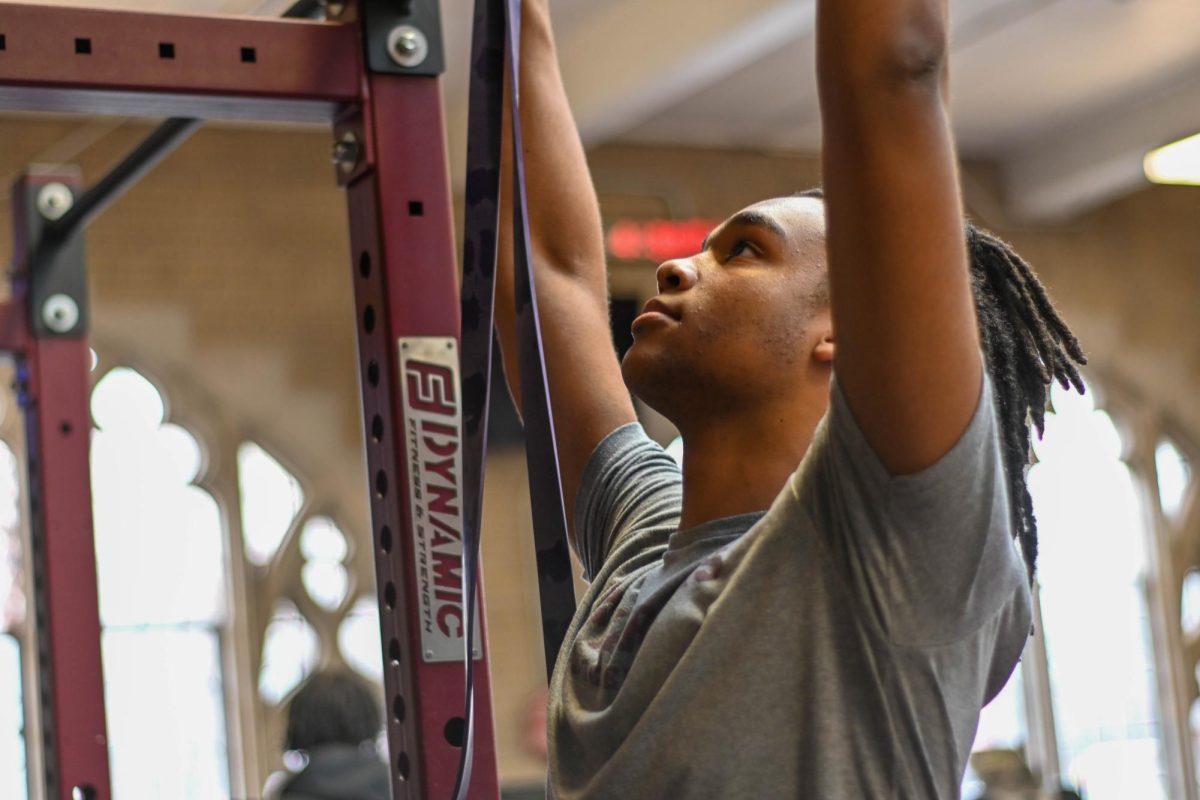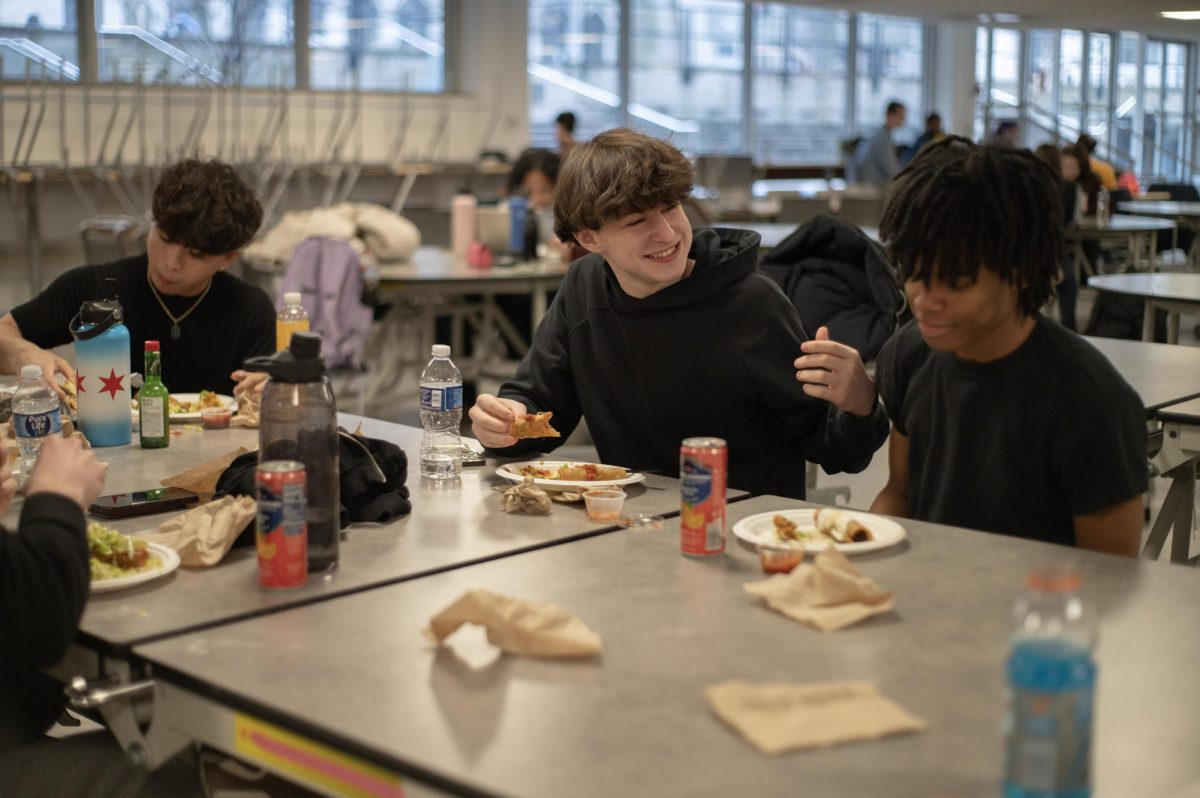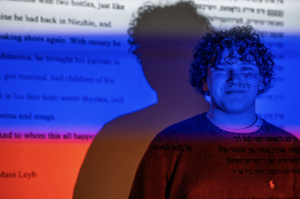Senior finds community in rugby
Marc Fohran balances physical aggression with respect for opponents
May 10, 2018
Tackle. Ruck. Maul. Scrum.
In a full-contact sport riddled with tackles and hits that leave senior Marc Fohran with bruises or worse after every game, Marc said what he loves most about rugby is the sense of camaraderie and the brotherhood the sport creates.
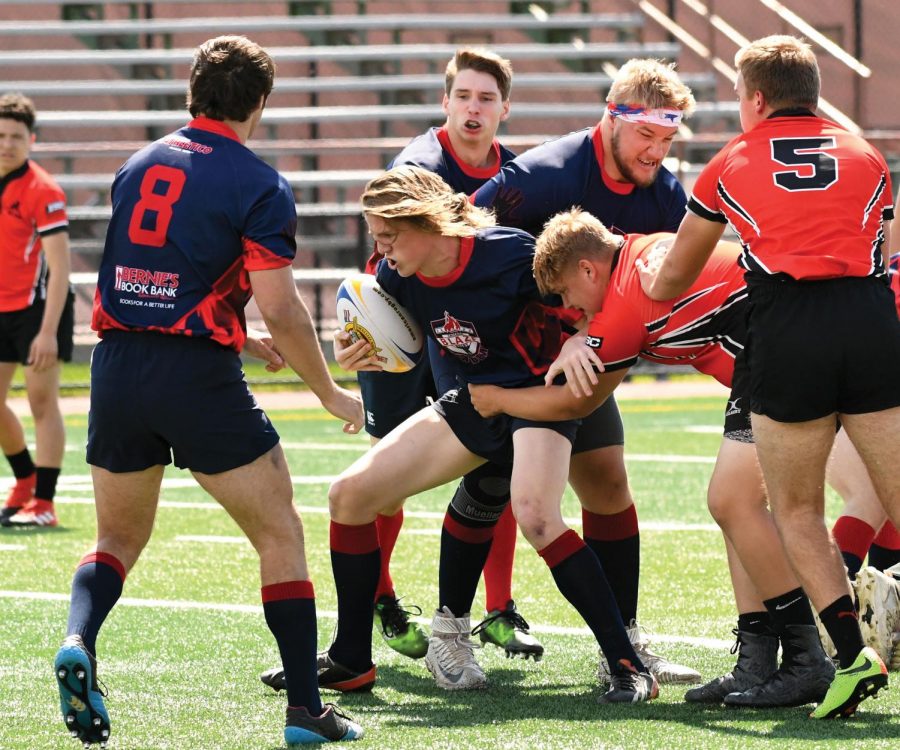
ROUGH N’ TUMBLE RUGBY. Marc Fohran, center, has possession of the ball during a game. Marc joined a local rugby team, the Chicago Blaze, his sophomore year, after encouragement by his older brother. As a freshman entering the University of Puget Sound in the fall, Marc intends on continuing to play.
“When we play other teams, you go out for 80 minutes, probably, and just beat the crap out of each other,” Marc, who plays for the Chicago Blaze Rugby Club, said. “And then afterwards, you go up, and, you know, you high five. You’ll talk to the guy that you tackled or that tackled you. It’s just like a really close knit group of guys.
Rugby is similar in many ways to American football — oval-shaped ball, full contact, teams trying to get a ball through goalposts at the end of the field. Unlike football, rugby players do not wear padding or helmets.
That creates an image of rugby in many people’s minds, according to Marc.
“People look at it as just kind of a sport where you’re just hitting each other as hard as you can without pads or anything,” Marc said.
But to Marc, rugby is different kind of sport in other ways, too.
“It’s a gentleman’s game in the sense that everyone’s very close-knit and polite about everything,” Marc said. “You’re not going to get someone who’s gonna hit you and then just rag on you about it.”
And Marc believes that rugby is a more mental game.
“I feel like with football, you have all those pads, so now you can go into hitting someone with the mindset that you can just kind of hit them at 100 miles an hour,” Marc said. “You have all this padding — whereas with rugby, it’s like you got to kind of break down and think about what you’re doing, rather than just leading with your head and hitting someone.”
According to a 2016 ESPN article, USA Rugby CEO Dan Payne said that there were 35,000 high school athletes played rugby in the United States. During the same time period, 1.248 million people ages 15-18 played football, according to the Sports and Fitness Association in a different 2016 ESPN article.
While Marc said children interested in football often must start at a young age, he started playing rugby and joined a local team during his sophomore year.
“I went into it because my brother started playing college, and he came back from school and told me about it and got me interested,” Marc said.
And Marc is looking to play in college, too — the same college his brother attends, the University of Puget Sound in Tacoma, Washington.
So even through practices full of conditioning, drills and scrimmaging with full contact, Marc looks forward to meeting a new team that he can share the brotherhood that he has with his Chicago team.
“You go out every Monday and Wednesday, kind of hone our skills, support each other through it, and just kind of encourage each other to, if you get hit hard or something, just get back up. Keep going. Keep playing. It’s just a very supportive community.”

